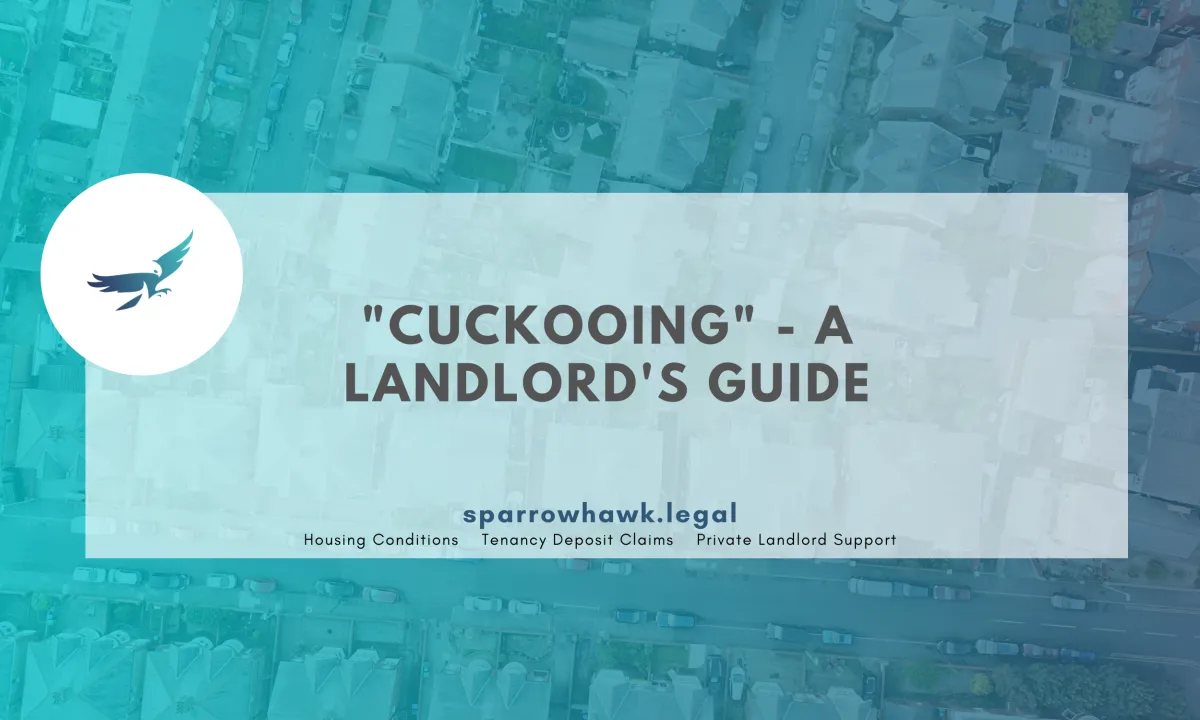Private Landlord Claims
We are here for you if you are a private tenant with housing disrepair
Take our free quiz to find out if you have a claim or book a call with our friendly Housing Disrepair Team
Yes, we do help Private Tenants
But we do understand that it's not an easy decision.
Are you are a private tenant living with housing disrepair?
Are you are scared you might not get your deposit back?
Are you frightened about asking for help in case your landlord evicts you?
Are you at breaking point and just can't take it anymore?
What you need to do
The first step is to contact us. We won't do anything or contact your landlord without your consent. We will discuss your options with you and if we can help we will, but a housing disrepair claim might not be the right option and we will advise you accordingly.
Get Started Today
STILL NOT SURE?
Frequently Asked Questions
We hope this information is useful, but please contact us if you have any other questions
Can my landlord evict me if I start a claim?
The short answer unfortunately is still yes. Whilst there are some changes to the law coming which means landlords will not be able to evict you if you're not at fault, those changes still have yet to come into force and landlords can and will still evict as a means of retalliation.
How much will it cost me to claim?
We help private tenants on the same basis as council and housing association tenants - no win no fee. This means you do not pay anything up front and only pay for our services when your claim is successful.
What can I claim for?
You can claim compensation for living in a property that is in disrepair, along with any damages for personal items that have been damaged and any injury to your health due to the disrepair.
How much compensation will I receive?
The main focus of a housing disrepair claim is to get your property repaired to the highest possible standards (not your landlord's standard). Compensation depends on the severity of the disrepair and how long you have been complaining about it. It varies on a case by case basis.
What do I need in order to make a claim?
You need to have informed your landlord of the disrepair and given them a reasonable amount of time to make those repairs. If they are ignoring you or refusing to repair then providing you still live in the property and can prove that you have notified the landlord then you can make a claim.
I am in arrears, does this make a difference?
Yes, it can make a difference to your claim. If you are not paying rent (even if you believe that withholding rent is fair due to the poor state of your property) you are in breach of your tenancy agreement and your landlord can evict you.

"Cuckooing" - A Landlord's Guide
Attention Landlords: An Essential Guide to Combating the Troubling Rise of "Cuckooing" in Property Letting In the realm of UK property rental, the urgency to defend your investment and the welfare of your tenants against a threatening phenomenon cannot be overstated.
This phenomenon, known as "cuckooing," presents a critical challenge. This blog is dedicated to equipping landlords with the essential information required to fortify their properties and ensure the safety of those most susceptible to exploitation.
Understanding the Menace of Cuckooing: A Dangerous Reality for Landlords
The word "cuckooing" might bring to mind the crafty behavior of a certain bird, but for landlords, it symbolises a significant and disturbing threat.
This malevolent tactic is increasingly used by criminals who target and manipulate individuals struggling with issues such as addiction, mental health crises, or isolation. They insidiously infiltrate these victims' homes, converting them into operational bases for nefarious activities that include drug trafficking, forced labor, and additional forms of criminal enterprise.
Why Should Landlords Be Concerned About Cuckooing?
One might falsely presume that cuckooing is an unusual or uncommon occurrence. However, this illicit practice is escalating and carries with it severe repercussions for your property's integrity, your personal reputation, and, not least, your duties as a legal property owner. Damage to your holdings, being held accountable for criminal activities, reputational harm, and exposing tenants to increased hazards are all potential outcomes of falling victim to cuckooing.
Strategies for Landlords to Counter Cuckooing
When it comes to countering the cuckooing menace, landlords must take a proactive stance. It is essential to conduct thorough background checks on potential tenants, keep a close watch for any signs of trouble, and maintain heightened vigilance, particularly within high crime rate localities. Be on the lookout for harbingers of cuckooing: unusual odors, abrupt damages to the property, unfamiliar faces entering and exiting, or unexpected shifts in tenant behavior.
Immediate Action in Response to Cuckooing Suspicions
Should you notice any troubling indicators, do not delay. Act immediately by reaching out to both the local authorities and police forces, thereby establishing a collaborative effort to thwart these devastating forms of exploitation. As a landlord, you wield considerable influence to safeguard your property and the individuals within—make sure to act decisively and promptly
Did you know you can Rate your Landlord?
with Marks Out of Tenancy if you're
Looking for the best landlords and letting agents...
Join the thousands of renters rating and reviewing their landlord, letting agent and rental properties. Tell your story, share your experience, rate your landlord and letting agent.
Sparrowhawk Legal Ltd | Registered in England and Wales | Registered Company No: 14507943 | Registered office: 5th Floor 167-169 Great Portland Street, London, W1W 5PF | Tel 0204 581 9300
Sparrowhawk Legal Ltd is authorised and regulated by the Solicitors Regulation Authority No. 8004127
Sparrowhawk Legal is a trading name of Sparrowhawk Legal Ltd.
© Copyright 2024. Sparrowhawk Legal. All rights reserved.

